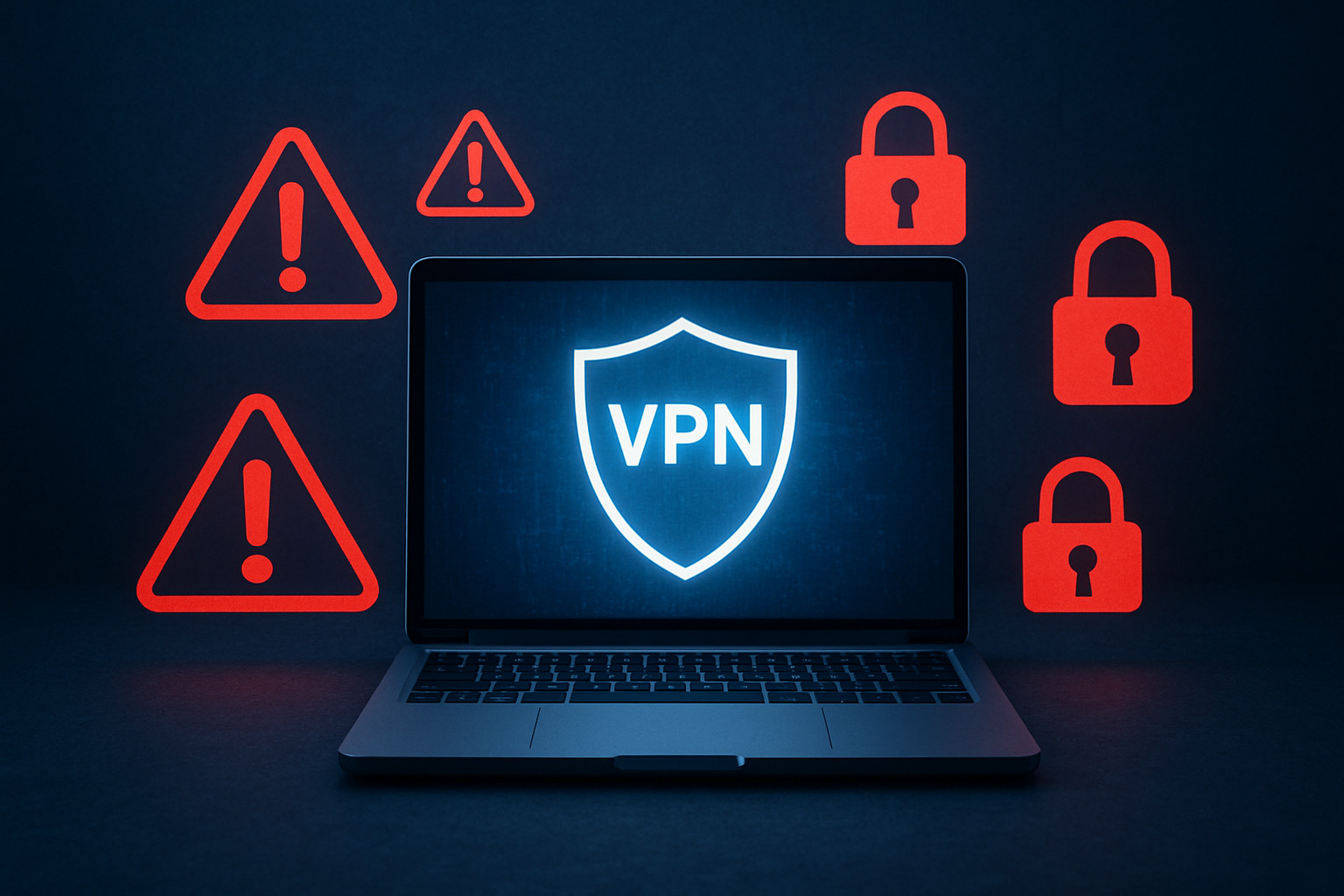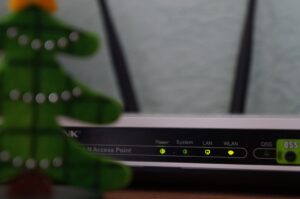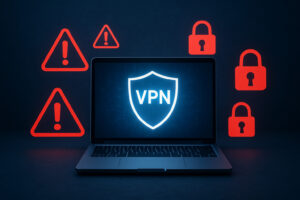How Secure Are Free VPN Services? 5 Shocking Risks 2025
Why Free VPN Security Matters More Than You Think
How secure are free vpn services? Most free VPNs pose significant security risks – 38% contain malware, 84% leak your data to third parties, and 72% embed tracking tools that defeat the purpose of using a VPN in the first place.
Here’s what the research shows about free VPN security:
• Data breaches are common – Free VPNs leaked 1.2 TB of user data in 2020 and 21 million credentials in 2021
• Malware infection rate is high – 38% of free Android VPN apps contain malicious code or malvertising
• Privacy violations are standard – 80% request access to sensitive data and share it with advertisers
• Encryption is often weak or missing – 18% don’t encrypt traffic at all, leaving you exposed
The appeal is obvious. Free VPN services promise online privacy without the monthly fee. With 47% of VPN users choosing free options, millions of people are trading their data for what feels like protection.
But here’s the reality: if you’re not paying for the product, you often become the product. Free VPN providers need revenue somehow – and that usually means selling your browsing data, serving invasive ads, or worse.
This doesn’t mean all free VPNs are dangerous. A few legitimate options exist. But the vast majority turn your quest for privacy into a security nightmare instead of a safe haven.

Why People Turn to Free VPNs
We get it. The motivation behind choosing a free VPN makes perfect sense on the surface. Who wouldn’t want to save money while protecting their privacy?
The most common reasons people gravitate toward free VPNs include:
Cost-saving – Premium VPN services typically cost $3-12 per month. For budget-conscious users, free alternatives seem like an obvious choice.
Geo-unblocking – Many users just want to access streaming content from other regions or bypass workplace restrictions occasionally.
Public Wi-Fi protection – Coffee shop browsers and airport internet users seek basic encryption without ongoing commitments.
Testing the waters – Some people want to try VPN functionality before investing in a paid service.
The problem? These legitimate needs often lead people into dangerous territory. Over two-thirds of free VPN users report performance issues, but the real concern isn’t slow speeds – it’s what’s happening to your data in the background.
What Exactly Is a Free VPN and How Does It Work?
Think of a free VPN as a digital tunnel between your device and the internet. Just like paid services, it creates an encrypted pathway that routes your traffic through a remote server, masking your real IP address and location in the process.
But here’s where things get interesting – and a bit concerning. While the basic technology works the same way, the business model behind free VPNs creates some serious compromises.
Premium VPNs are straightforward – you pay a monthly fee, they provide the service. Free VPNs? They need to make money somehow, and that “somehow” often involves your personal data.
Most free services operate on what’s called a freemium model. You get basic VPN functionality, but with strings attached. Your monthly data might be capped at just 500MB to 1GB – barely enough for a few hours of browsing. Speeds get deliberately throttled to encourage upgrades. Server locations are limited, creating overcrowded connections that crawl along during peak hours.
The feature restrictions tell the real story. Kill switches, leak protection, and advanced security protocols – the very features that make VPNs secure – are often missing from free tiers entirely.
Some free VPNs take an even riskier approach with peer-to-peer routing. This turns your device into part of their network infrastructure, meaning other users’ internet traffic could flow through your connection. Imagine the legal headaches if someone does something questionable using your IP address.
For more details on VPN fundamentals, check out our guide on What is a VPN?
Revenue Streams Behind “Free”
Here’s the million-dollar question: if you’re not paying for the service, how do free VPN companies keep the lights on? The answer explains why how secure are free VPN services becomes such a critical concern.
Data collection and sales represent the most common revenue stream. Research reveals that 72% of free VPN services embed third-party tracking tools – the very thing you’re trying to avoid. Your browsing habits, app usage patterns, and personal information become valuable commodities sold to advertisers and data brokers.
Then there’s the advertising assault. Many free VPNs bombard users with ads, including potentially dangerous malvertising that can slip malware onto your device. It’s ironic – you’re trying to protect yourself online, but the protection itself becomes the threat.
Freemium upselling creates deliberate pain points. Those data caps and speed limits aren’t technical limitations – they’re business strategies designed to frustrate you into upgrading to paid plans.
Perhaps most concerning is bandwidth reselling. Some providers actually sell your unused internet bandwidth to third parties, essentially turning your device into an exit node for unknown traffic. You have no idea what kind of data is flowing through your connection.
The uncomfortable reality? If a VPN provider can’t clearly explain their revenue model, your personal data is probably funding their “free” service.
The Hidden Costs: Security & Privacy Risks of Free VPNs

When you ask how secure are free VPN services, the answer is deeply troubling. What appears to be a simple privacy tool often becomes a gateway for cybercriminals and data harvesters.
The research tells a stark story. Independent studies from respected institutions like the University of New South Wales have uncovered systematic privacy violations across the free VPN landscape. Instead of protecting users, many of these services actively exploit them.
Malware infection stands as perhaps the most dangerous threat. When researchers analyzed 283 popular free Android VPN apps, they finded something shocking – 38% contained malware or malicious advertising. These aren’t just buggy apps with performance issues. We’re talking about software designed to steal your personal information, hijack your browser, or turn your device into part of a criminal botnet.
Think about that for a moment. You download an app to protect your privacy, but there’s more than a one-in-three chance it’s actually spying on you.
Third-party tracking represents another cruel irony. You install a VPN to hide from trackers, but research shows 72% of free VPN services embed tracking tools from major tech companies. Instead of creating privacy, these apps create detailed profiles of your online behavior and sell that information to the highest bidder.
The permission requests alone should raise red flags. Many free VPN apps demand access to your camera, microphone, text messages, and contact lists – none of which have anything to do with routing internet traffic. These intrusive permissions create multiple ways for bad actors to access your personal life.
Chinese ownership concerns add a geopolitical dimension to the privacy risks. Investigations reveal that roughly a third of popular free VPNs are owned by Chinese companies. Under China’s cybersecurity laws, these companies may be required to hand over user data to government authorities, regardless of their privacy promises.
Perhaps most disturbing is bandwidth hijacking. Some free VPN services literally sell your internet connection to other users. Your device becomes an exit point for someone else’s traffic – traffic you have no control over and that could potentially be illegal. Services like Hola VPN have been caught creating massive botnets from their users’ devices.
For those who want to dig deeper into the technical details, the Scientific research on free VPN malware provides comprehensive findings on these security vulnerabilities.
Real-World Breaches and Stats
The numbers behind free VPN security failures are staggering, and they’re getting worse each year.
In 2020, seven free VPN providers accidentally exposed 1.2 terabytes of private user data. That’s not a typo – 1.2 TB included browsing histories, device information, and personal details from millions of users who thought they were browsing privately.
The following year brought another massive breach when three free VPN services leaked detailed login credentials for more than 21 million users. Imagine having your username, password, and browsing history exposed because you tried to save a few dollars on privacy protection.
2023 saw the largest breach yet – a single incident that leaked 360 million user records from multiple free VPN providers. The scale of these breaches dwarfs many major corporate data leaks.
But here’s what really matters: these aren’t isolated incidents. In 2024 testing of the 100 most popular free Android VPNs, researchers found that 88% suffered data leaks of some kind. Even more alarming, one in ten experienced complete encryption failures, meaning they weren’t protecting user traffic at all.
The pattern is clear. Free VPN providers consistently fail to invest in proper security infrastructure. When your business model depends on monetizing user data rather than protecting it, security becomes an afterthought rather than a priority.
These breaches represent millions of real people who trusted free VPN services with their most sensitive information – only to have that trust betrayed by inadequate security practices and questionable business models.
How Secure Are Free VPN Services? The Short Answer
How secure are free vpn services? Here’s the uncomfortable truth: they’re not secure at all. The overwhelming evidence shows that most free VPNs fail to provide even the most basic security protections that make a VPN worth using.
Think about it this way – if someone offered you a free car, you’d probably wonder what was wrong with it, right? The same logic applies to VPNs. When security is the whole point of the service, cutting corners to offer it for free usually means cutting the security itself.
Encryption gaps are everywhere in the free VPN world. While legitimate services use military-grade AES-256 encryption, many free providers still rely on outdated protocols like PPTP that security experts cracked years ago. Some implement encryption so poorly that it’s basically useless. The most shocking part? Some don’t encrypt your traffic at all, despite claiming to be a “VPN.”
Missing security features leave massive holes in your protection. Those essential safeguards like kill switches that cut your internet if the VPN fails? Often missing. DNS leak protection to prevent your browsing from being exposed? Frequently absent. IPv6 protection? Don’t count on it.
Without these features, your real IP address and browsing activity can leak even when the VPN appears to be working perfectly. It’s like having a security guard who falls asleep on the job – worse than no protection because you think you’re safe when you’re not.
Weak protocols make the problem even worse. Many free VPNs use connection methods that researchers have already proven vulnerable. It’s like using a lock that everyone knows how to pick.
The difference between free and paid services becomes crystal clear when you compare their features side by side:
| Feature | Free VPNs | Paid VPNs |
|---|---|---|
| AES-256 Encryption | Rarely | Standard |
| Kill Switch | Usually Missing | Standard |
| DNS Leak Protection | Often Absent | Standard |
| No-Logs Policy | Questionable | Audited |
| Server Network | Limited | Extensive |
| Customer Support | None | 24/7 |
| Speed Throttling | Common | Rare |
| Data Caps | Typical | Unlimited |
This isn’t just about features – it’s about whether the service actually protects you or puts you at greater risk than having no VPN at all.
For a deeper dive into these differences, check out our Free VPN vs Paid VPN: Which One is Better? guide.
How Secure Are Free VPN Services on Mobile?
Mobile devices face even bigger security challenges with free VPNs. Your phone contains some of your most sensitive personal information, making these vulnerabilities particularly concerning.
Android users face the highest risks due to the platform’s more open app ecosystem. 38% malware infection rate we mentioned earlier? That primarily affects Android users. While Google has security measures in place, malicious apps still slip through, especially when they’re disguised as helpful tools like VPNs.
Permission abuse becomes especially problematic on mobile. Many free VPN apps demand access to your contacts, photos, location data, and microphone – information that has absolutely nothing to do with routing your internet traffic. On Android, these permissions can be particularly invasive, giving apps broad access to your personal data.
iOS users aren’t immune either. App Store investigations have revealed that many free VPN apps violate Apple’s privacy guidelines by tracking users without consent or providing misleading privacy labels. The stricter review process helps, but it’s not foolproof.
Hotspot sharing risks create a unique mobile threat. Some free VPN apps secretly turn your phone into a hotspot for other users’ traffic. This means strangers could be routing their internet activity through your device, potentially making you legally responsible for whatever they’re doing online. It’s like letting random people borrow your car without knowing where they’re going.
Checklist: How Secure Are Free VPN Services When You Test Them?
If you’re absolutely determined to try a free VPN despite all these warnings, here’s how to evaluate whether it’s actually protecting you:
Start with DNS and IP leak tests using online tools to check if your real location and browsing queries are leaking out. Many free VPNs fail these basic tests spectacularly, defeating the entire purpose of using them.
Investigate their no-logs policy by looking for independent audits that confirm the provider isn’t secretly recording your online activity. Here’s the catch – most free services can’t provide this verification because they actually are logging your data to sell it.
Research the company’s jurisdiction to understand what data retention laws apply and whether the government can force them to spy on users. Avoid providers based in countries with mandatory logging requirements or authoritarian surveillance programs.
Look for independent security reviews from reputable tech publications and security researchers. User reports can also reveal real-world privacy failures that official marketing materials won’t mention.
Test speed and reliability to see if the service actually works for your needs without making your internet unusably slow. If it can’t handle basic browsing, it definitely can’t handle protecting your privacy.
The harsh reality? Very few free VPNs pass even these basic security checks. Most fail multiple tests, confirming that they’re not just ineffective – they’re actively making your online security worse.
Safe Use Cases & How to Vet a Free VPN (If You Must)

Let’s be honest – sometimes life puts you in a spot where a free VPN feels like your only option. Maybe you’re traveling and need quick access to blocked content, or you just want to test VPN functionality before spending money. While we don’t recommend it, there are a few scenarios where how secure are free vpn services becomes less critical because the stakes are lower.
Temporary travel situations might justify the risk if you only need basic geo-unblocking for a few days. Think accessing your home country’s news sites or streaming services during a short business trip. Just remember – this isn’t for accessing banking or sensitive accounts.
Low-risk casual browsing on public Wi-Fi represents another potential use case. If you’re just reading articles or checking weather forecasts at a coffee shop, a vetted free VPN might provide some protection against basic Wi-Fi snooping.
Testing VPN features before committing to a paid service makes sense, though reputable providers usually offer free trials that are much safer than truly “free” services.
If you absolutely must go the free route, you need to be incredibly picky about which service you choose. Look for AES-256 encryption – the same standard banks and government agencies use. A proper kill switch is non-negotiable since it blocks all internet traffic if your VPN connection suddenly drops.
Any legitimate provider should have a clear no-logs policy, ideally verified by independent audits. Multi-factor authentication protects your VPN account from being compromised. Open-source clients allow security experts to verify there’s no hidden malicious code.
For deeper insights into privacy-focused options, check out our Privacy-Focused VPN guide. Our VPN Comparison Guide can also help you evaluate features across different services.
Red Flags to Avoid
Some warning signs should make you run in the opposite direction, no matter how tempting the “free” offer seems.
Excessive permissions top the danger list. If a VPN app wants access to your camera, microphone, text messages, or contacts, that’s not a VPN – that’s spyware with a VPN disguise. Legitimate VPN apps need minimal permissions to function.
Vague privacy policies or missing company information signal major trouble. Real VPN providers clearly explain how they handle your data and provide verifiable business details. If you can’t figure out who’s actually running the service, assume the worst.
Unrealistic “unlimited” promises are basically lies. Running VPN servers costs serious money. No company can provide truly unlimited free service without making money somewhere else – usually by selling your data.
Outdated security protocols like PPTP or L2TP without IPSec offer about as much protection as a paper umbrella in a thunderstorm. These protocols were cracked years ago and provide zero real security.
Suspiciously perfect reviews often indicate fake review campaigns. Legitimate services have mixed reviews because no VPN is perfect for everyone.
Here’s the bottom line: if you can’t figure out how a “free” VPN pays for its servers, staff, and infrastructure, your personal data is probably the product being sold. The most secure approach? Save up for a reputable paid service that clearly explains its business model and has independent security audits to back up its claims.
Frequently Asked Questions About Free VPN Security
Let’s tackle the most common questions people ask about how secure are free vpn services. These are the real concerns that keep coming up in forums, support tickets, and conversations with friends who’ve heard horror stories about free VPNs.
Is it safer to skip a VPN than use a risky free one?
This might surprise you, but yes – sometimes going without a VPN is actually safer than using a sketchy free one.
Think about it this way: when you’re not using a VPN, you know exactly what you’re dealing with. Your ISP can see your browsing, and public Wi-Fi networks are risky. But at least you’re aware of these limitations.
A malicious free VPN, on the other hand, actively works against you while making you think you’re protected. It’s like hiring a security guard who secretly robs your house while you sleep. The false sense of security can actually put you in more danger.
If you’re stuck choosing between a questionable free VPN and no protection at all, consider these safer alternatives instead. Stick to HTTPS websites whenever possible – that little lock icon in your browser provides encryption between you and the website. Enable your browser’s built-in privacy features like tracking protection and private browsing mode.
When you can, use trusted networks like your home Wi-Fi instead of public hotspots. And here’s a pro tip: many reputable VPN companies offer legitimate free trials that give you full protection for a week or month without the risks of permanent free services.
Can free VPNs really bypass streaming geo-blocks?
Here’s the honest answer: most free VPNs are terrible at unblocking streaming services. Netflix, Hulu, Disney+, and other platforms have gotten really good at detecting and blocking VPN traffic, and free services just can’t keep up.
The problem isn’t that free VPNs don’t try – it’s that streaming companies fight back harder than free providers can handle. These platforms employ sophisticated detection systems that identify VPN servers and block them within days or even hours.
Free VPNs face several uphill battles when it comes to streaming. Their limited server networks make them easy targets for detection. When hundreds of users share the same IP address, streaming services notice the unusual traffic patterns quickly.
Bandwidth limitations create another problem. Even if a free VPN manages to access a streaming service, you’ll likely face constant buffering and poor video quality. Nothing ruins a movie night quite like watching your show freeze every few minutes.
Premium services invest serious money in this cat-and-mouse game with streaming platforms. They constantly deploy new servers, rotate IP addresses, and develop specialized streaming servers. Free providers simply can’t afford this level of ongoing investment.
Are there any reputable 100% free VPN options?
This is the question everyone really wants answered, and we’ll give you the straight truth: genuine free VPN options are extremely rare, but a few legitimate ones do exist.
Proton VPN stands out as the most trustworthy completely free option. They offer unlimited data usage, no advertisements, and solid privacy protections. The catch? You’re limited to three server locations and significantly slower speeds compared to their paid tiers. But hey, at least they’re not selling your browsing history to advertisers.
Windscribe provides 10GB of monthly data with decent privacy practices and no logging of your activity. They’re transparent about their business model and don’t bombard you with invasive ads.
Hide.me offers another 10GB monthly option with good security features. They don’t even require payment details for signup, which shows they’re not trying to trick you into unwanted subscriptions.
What makes these services different from the dangerous free VPNs we’ve been warning about? They have clear, sustainable business models. These companies offer limited free tiers to attract users to their premium services, rather than secretly monetizing your personal data.
The key thing to remember is that even these reputable free options come with significant restrictions. They’re designed to give you a taste of VPN protection, not replace a full-featured service. But if you need basic protection for light browsing or want to test VPN functionality, they’re infinitely safer than the data-harvesting apps that dominate free VPN rankings.
Conclusion
So, how secure are free vpn services? After examining the research, data breaches, and security failures, the answer is sobering: most free VPNs are digital disasters waiting to happen.
The numbers tell a stark story. When 38% of free VPN apps contain malware, 84% leak your data to advertisers, and 72% embed the very tracking tools you’re trying to avoid, these services become the opposite of protection. They’re privacy nightmares disguised as security solutions.
But here’s the thing – we understand why people choose free options. Money’s tight, and the idea of paying monthly for something that feels intangible seems unnecessary. The problem is that running a truly secure VPN costs serious money. Those servers, encryption protocols, and security audits don’t come cheap.
Think of it like this: would you trust a “free” bank to protect your money? Free VPN providers face the same economic reality – if they’re not charging you, they’re making money from your data somehow.
That said, we won’t pretend every free VPN is evil. A handful of legitimate companies offer genuinely safe free tiers as part of their business strategy. Services like Proton VPN prove it’s possible to provide basic protection without selling your soul (or your browsing history) to advertisers.
Our honest advice? If your digital privacy matters, invest in a reputable paid service. The few dollars per month pale in comparison to the potential cost of identity theft, malware infections, or having your personal data sold to the highest bidder.
For those who absolutely must use free options, stick to the vetted providers we’ve mentioned and never trust them with anything truly sensitive. Your bank account, work emails, and personal documents deserve better protection than what most free VPNs can provide.
At The Techie Genius, we believe knowledge is your best defense against digital threats. Whether you choose free or paid services, understanding the real risks helps you make smarter decisions about your online security.
Ready to dive deeper into VPN security? Check out our complete collection of VPN guides for everything from beginner setup tips to advanced privacy configurations.







